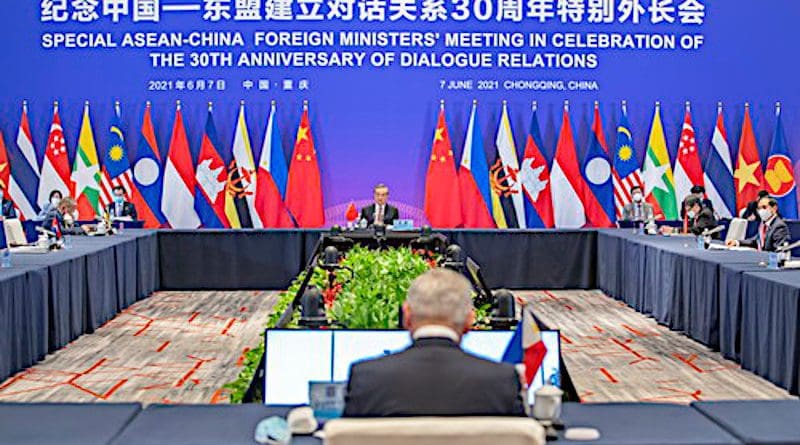China-Southeast Relations And The Treaty Of Amity And Cooperation (TAC) In Southeast Asia – OpEd
This year marks the 20th anniversary of China’s accession to the Treaty of Amity and Cooperation in Southeast Asia (TAC). It is a legally-binding document requiring all parties to exercise their duty to cooperate in the conduct of their external affairs. Initiated by the members of the Association of Southeast Asian Nations (ASEAN) in 1976, it has become a global treaty with the accession of 41 other parties outside of ASEAN.
With the current total of 51 parties worldwide and still growing, there is no doubt that the TAC has become ASEAN’s major contribution to the promotion of global peace and security because of its intention to establish the norm of non-aggression through a “non-war regime” and pacific settlement of international disputes.
The TAC is a strong indication that the ASEAN Way of managing conflicts and promoting peace has a strong global resonance as it is consistent with the principle of the Charter of the United Nations and the universal principle of peace and justice. Even the UN General Assembly has acknowledged the contribution of TAC in the maintenance of international peace and security. Thus, from initially an enabler of regionalism in Southeast Asia, the TAC is evolving to be an enabler of globalism with the increasing accession of countries not only in Asia but also in Africa, Europe, Latin America, and North America.
With the TAC, ASEAN has become an attractive regional organization championing economic integration and security community building beyond Southeast Asia. As such, the TAC upholds the ASEAN centrality in promoting dialogues, consultations, and cooperation in the Asia Pacific.
China is the first country in the world that acceded to the TAC. China’s accession to the TAC in 2003 created a snowball effect as it encourages many other parties in the world to join. China trailblazed the importance of TAC to uphold the importance of peaceful coexistence and friendly cooperation among nations based on the following core values:
- Mutual respect for the independence, sovereignty, equality, territorial integrity and national identity of all nations;
- The right of every State to lead its national existence free from external interference, subversion and coercion;
- Non-interference in the internal affairs of one another;
- Settlement of differences or disputes by peaceful means; and,
- Renunciation of threats or use of force
These are the core values that China and ASEAN Member States (AMS) strongly hold dear. The TAC raises eternal hopes that China and AMS can cherish the dream of perpetual peace by being friends forever. Through the TAC, China has described its relationship with Southeast Asia as the “model relationship”, an exemplary practice of external relations that can provide a template for others to emulate.
As the model relationship, there are limitless possibilities for China, ASEAN and AMS to cooperate in various fields that are already found in the Plan of Action of the China-ASEAN Comprehensive Partnership for Peace and Prosperity covering 2021-2025.. Though China and AMS have differences on some details of their relationships, the TAC provides the foundation for China and AMS to manage their differences so they will not lose of the sight to strengthen their cooperation and deepen their friendship now and in the future.
Remarks delivered at the Jakarta Forum on China-ASEAN Relations marking the 20th Anniversary of China’s Accession to the Treaty of Amity and Cooperation in Southeast Asia (TAC) held at the Shangri-la Hotel, Jakarta on 22 June 2023. The author is grateful to Dr. Dino Patti Djalal, Founder and Chairman of Foreign Policy Community of Indonesia (FPCI) for the kind invitation.

